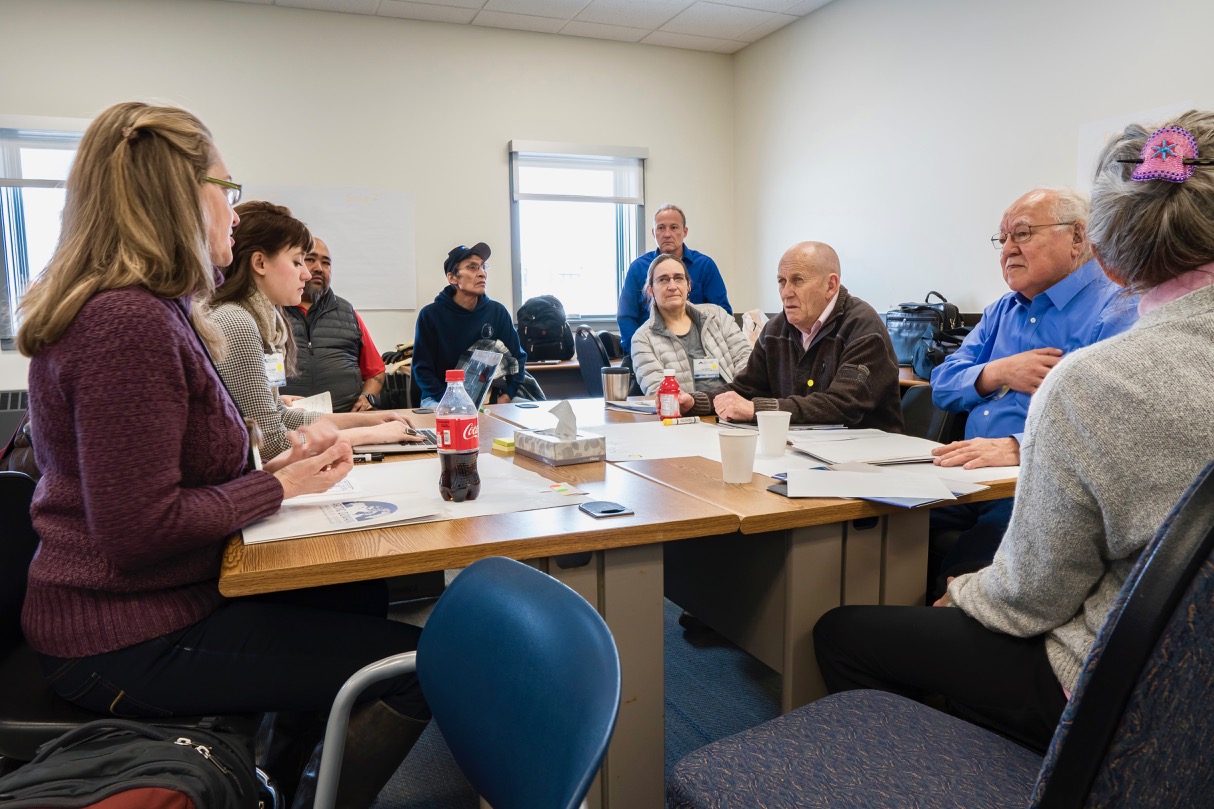
The Arctic is changing, and the people living there are trying to change with it.
Alaska Native community leaders discussed the challenges — and opportunities — facing an evolving Arctic at the Arctic Futures conference at University of Alaska Fairbanks Northwest Campus, Nome.
Arctic Domain Awareness Center, which does research and community engagement for the U.S. Coast Guard, hosted the conference.
Leaders of Alaska Native communities have very different ideas about where the Arctic is headed. But they generally agree on one thing:
“We are now in the time where we are living two lives,” said Don Long, former mayor of Utqiagvik. “One, trying to be a subsistence hunter, and the other one, trying to be working the 8-5 type of work that job requires today.”
That tension was front and center of the discussion.
About 50 people from the Bering Straits region and the Northwest Arctic and North Slope boroughs were in Nome for the two-day workshop.
They compared scenarios for 20 years into the future based on different variables, including how much ship traffic increases and how much erosion worsens.
On top of erosion, the land is also changing due to mining projects popping up throughout the Arctic. For some, it’s a way to make a living.
“In my family, I have gold miners,” Nome elder Perry Mendenhall said. “They make a living gold mining just like other people. Even when they were told not to mine, they mine, to feed their people.”
Arlene Soxie is against mining.
“It grieves me to see how disrupted our land is. All the digging that was done looks very ugly to me,” the elder from White Mountain said. “There are areas where we used to go pick berries, but it’s not available anymore, because the land has been destroyed.”
The ocean is in flux, too.
This winter saw the second-lowest Arctic sea ice extent on record. Last year saw the lowest.
“Back in 1992, I used to feel comfortable going to Barrow by May the 10th to participate in whaling,” Nome elder Charlie Brower said. “The last few years, if I’m not there by the third week of April, I’ve missed most of the migrations of the whales.”
There are some upsides to more development in the Arctic, like better health care and fiber-optic communications.
Gordon Brower, who directs planning and community services for the North Slope Borough, hopes to see more improvements like those.
“With a housing crisis because of lack of opportunity — it’s like a cycle that we need to break, with economics,” Gordon Brower said. “Economic is the buzz word.”
Gordon sees responsible resource development in the Arctic as a way to break that cycle. And he wants to make protecting oil reserves in the Beaufort Sea a national security priority.
Elim elder Robert Keith said designing infrastructure around how nature behaves could help communities avoid the worst consequences — and price tags — of a changing climate.
But he says that kind of knowledge only comes with years of experience living in the Arctic.
“We’ve always been very adaptable people. We’ve had to live like that,” Keith said. “That’s part of our nature. We’re going to survive, but I don’t think some of the places we live at will.”
For now, Nome will move forward with exploring a deep-draft port that would bring more ship traffic through the Bering Strait.
Down the coast, people like Keith will watch the sea ice retreat and the coast continue to erode.
